Jackie Charlton was Newcastle manager for little more than a year. He had previously had success as manager of Middlesbrough and Sheffield Wednesday and would go on to achieve near sainthood as manager of the Ireland team.
He appeared to be ideally suited for the Newcastle job; he was a local and had the necessary strength of character to deal with the peculiar pressures of sitting in the St. James' hot seat. So what went wrong?
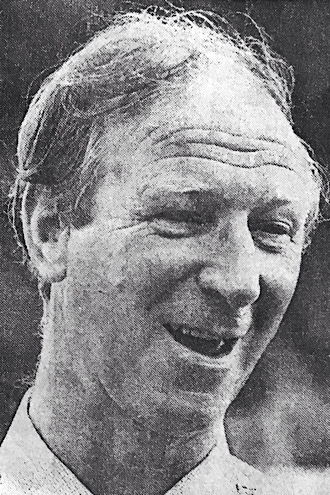
In 1974/75 Jackie Charlton - in his first season of management - steered Middlesbrough to the First Division title and scooped the Manager of the Year award. The following season he resigned after taking Middlesbrough to 6th in the top division.
He returned in October 1977 as manager of Sheffield Wednesday who were languishing in the bottom half of Third Division and took them back to the Second in 1979/80. He left the Hillsborough side at the end of the 1982/83 season whereupon he spent a few months out of the game before returning to Middlesbrough on a temporary basis at the end of the 1983/84 season.
Despite his success Charlton's teams were often criticised for their negative tactics. He also had a reputation for being reluctant to spend money and a strict disciplinarian, both of which had an obvious attraction to our board.
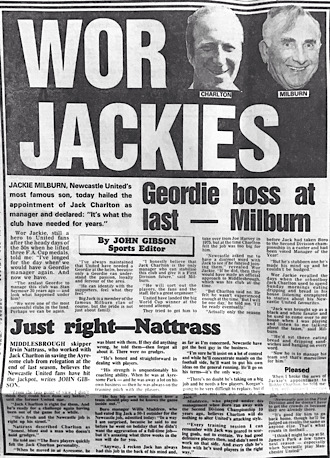
After guiding the Keegan inspired Newcastle back to the First Division Arthur Cox had dramatically resigned.
The Newcastle directors decided to approach Ashington-born Jackie Charlton. He had first been offered the United job following the resignation of Joe Harvey in 1975. However, despite United's use of cousin Jackie Milburn to try and convince him, he declined.
Milburn was once more asked to try and persuade Jackie and once again Charlton, as he reveals in his autobiography, said no. But this time Milburn kept pressing and Charlton relented, albeit without a contract (his usual stance) and only with an agreement to take the job for one year.
Milburn was delighted because he, as well as many other fans, felt that only a Geordie could truly identify with the supporters and understand their passion and loyalty for the club.
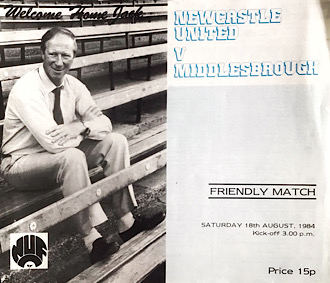
As well as the retiring Keegan, United had also lost two other experienced players in John Trewick and David Mills and Terry Mcdermott soon followed them out the door after falling out with Charlton.
Due to all the upheaval and with no new faces added, it was not surprising that the bookies made Newcastle one of the favourites for relegation. Therefore, Charlton’s primary aim for the season was to avoid dropping straight back down.
This was achieved with United finishing in 14th (out of 22). It was very tight at the bottom of the League and the 52 points gained was only 3 more than relegated Norwich.
The FA Cup and League Cup were “write-offs” with United falling in the Third Round of both, but this was par for the course at the time.
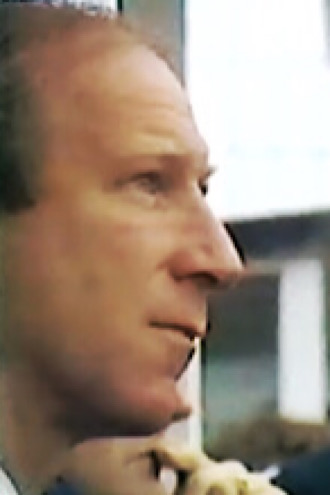
Many people were concerned that Charlton would bring an end to the free flowing football of the promotion season. Charlton simply made it clear when he arrived that "I will do what is necessary and no part of the game will be neglected".
Charlton's original tactics were based on playing five at the back, a defensive midfield and Wharton playing behind Beardsley and Waddle.
Although the confidence from the promotion season brought them three wins in a row at the start. Charlton disparagingly said that "beer and skittles" football would not keep them there for long.
Once he had signed a couple of midfielders Charlton reverted to a back four, but he was determined to change United's style of play. Waddle offers some quotes from Charlton in his autobiography which sum up his approach well. "I don't want you to play 1-2's on goal, I want you to play 1-2's with God"......"you can't get hurt as long as the ball's up in the clouds".
Charlton had made it clear from the start that he felt that the combination of Waddle and Beardsley up front was too lightweight and in the New Year he signed Tony Cunningham and George Reilly with Waddle and Beardsley being despatched to the wings.
The simple ploy was for the full backs to boot the ball up to the two big men and then for Beardsley and Waddle to "gallop up and down like demented dervishes" as Beardsley describes it in his autobiography, to try and get on the end of the "second ball"
The one-touch football of the promotion season had been replaced by a much more functional approach. As Beardsley states in his book "I certainly didn't enjoy the way we played, neither did Waddle and I am quite certain the fans didn't like it much either".
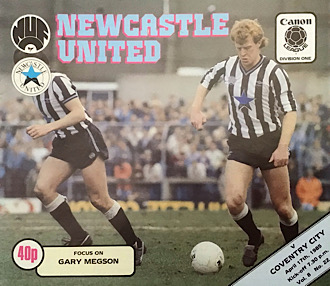
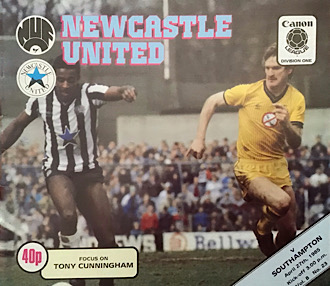
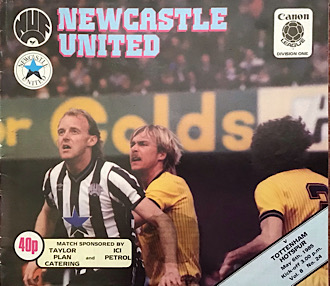
In his first press conference Charlton offered little cheer for fans hoping for new signings. Charlton said that he was "shocked" to learn that the club was £700,000 in debt, but was undaunted as it was a situation he had been in before. And he pointed out that when he resigned from Middlesbrough and Wednesday he "left them with money". He also stated that the club had been guilty in the past of "spending money like it was going out of fashion". "I'm someone who spends club money as if it was my own".
Charlton was initially in no rush to buy players, wanting to see what he had got first; "buy in haste, repent at leisure" as he stated later. But he soon became convinced of the need to buy and he promised "we will sign players... but only when I can sign players that will make a real difference".
Charlton decided that the midfield was the major area of weakness and first signed Pat Heard, a Sheffield Wednesday reserve. "Pat's not a spectacular player, but he will definitely strengthen our team".
His next signing was another midfielder, Gary Megson from Nottingham Forest. Brian Clough had signed him from Sheff Wed only six months previously, but had refused to play him stating that "he couldn't trap a medicine ball". Charlton stated at the time "that is behind him now and in any case he gets no sympathy from me over it".
His first attempt to beef up the attack was to bring in 20-year-old Ian Baird on loan from Southampton. In five games he was booked more often than he scored (once).
He then tried unsuccessfully to sign George Reilly from Watford, but when his approach was rebuffed he went for Tony Cunningham from Man City instead. However within weeks the Reilly deal was on again and he was signed too.
Neither Cunningham nor Reilly were recognised goalscorers and a return of 1 goal in 13 games for Cunningham and 3 in 14 for Reilly were not impressive. Indeed in the 12 games they played in the same team, only 11 goals were scored.
None of the four permanent signings made by Charlton had any lasting impact. Heard was dispatched to Middlesbrough for £10,000 in September of the next season (36 appearances and 2 goals). Megson teturned to Sheffield Wednesday for £65,000 (24(4) appearances and 2 goals). Reilly was sold to West Brom for £150,000 (33 appearances, 10 goals). Cunningham survived until August 1987 when he joined Blackpool for £25,000 (40(11) appearances, 6 goals).
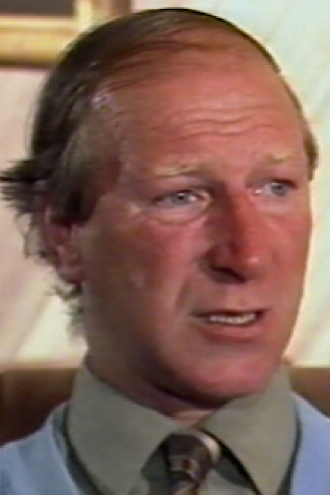
From day one Charlton made sure the players knew who was in charge. When asked about the players who had not signed their contracts he was unequivocal. "I don't know what contracts they have got but once I have made up my mind it will be a take-it or leave it situation....loyalty has swopped places with money".
This put him on an immediate collision course with Terry Mcdermott, who had already turned down the offer of a new contract prior to Cox's departure and Charlton wasn't prepared to offer him any more. A meeting with Mcdermott to discuss the situation was over in minutes. Charlton received a lot of criticism over this from the fans and the media and used the match programme to deride Mcdermott's complaints and accuse him of disloyalty "It was Mcdermott who chose not to play for the Newcastle fans he keeps telling everybody he loves so much".
Charlton was never afraid to publicly criticise his players. He rubbished Kevin Carr on more than one occasion, though he later admitted to feeling a "wee bit guilty" about it.
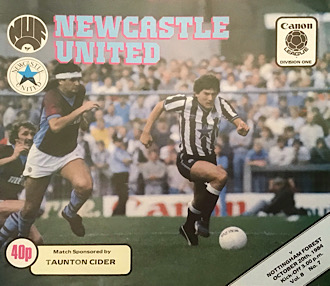
However the player he seemed to clash with most was Peter Beardsley. Charlton later described his relationship with Beardsley as "very tindery". Their approach to football was radically different and Charlton made scathing comments about Beardsley in his autobiography "In my experience, he just doesn't listen, or if he does, he chooses to ignore what you say".
Charlton would get furious with players who he thought were taking risks, if the team was winning he believed that you should "keep possession, kill time, be negative".
And the most famous incident involving the pair was in the home game against Luton when, with a few minutes to go, and Newcastle leading 1-0, Beardsley set off on one of his mazy runs, only to give away possession.
Charlton was furious and he marched onto the field to give him "the bollocking of a lifetime". Beardsley claimed he nearly scored, Charlton responded with "you nearly cost us the f****** game".
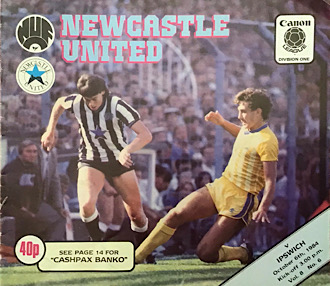
In the second-half of the season rumours started about Chris Waddle leaving and Tottenham made a bid which was rejected. His form also deteriorated and the crowd increasingly turned on him.
Charlton would later blame his departure on his introduction into the England squad claiming that, after that, he "was going through the motions". He also claimed that the local press exacerbated the situation by continually running stories about potential suitors.
In his own autobiography Waddle painted a different picture. He put his loss of form down to the change in tactics and team formation. Waddle also stated that Charlton was determined to deal personally with his contract negotiations and that the first offer made was "insulting".
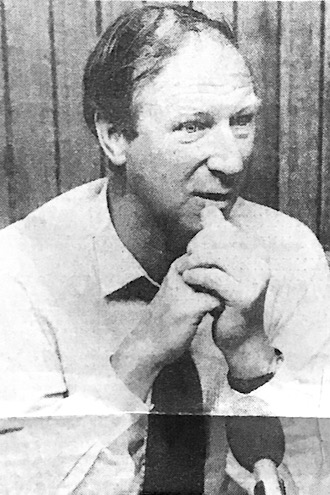
Charlton stated, in the first programme of the season, how he "had no hesitation at all in accepting Newcastle's offer ... there was absolutely no chance of me turning down Newcastle United". This does not tally with what he later stated in his autobiography about Milburn having to use "family" pressure to get him to even consider the job.
Willie Maddren, who knew Charlton well, expressed surprise when he accepted, stating that Charlton had told him weeks earlier that he "did not want the aggravation of a full-time job". He was always very quick to accuse players of a lack of loyalty but steadfastly refused to sign a contract himself.
Charlton's commitment was often questioned and he was clearly riled by the constant assertions that he spent too much time fishing and not enough time at the club. Charlton strenuously denied these allegations, but there were many anecdotes which suggested otherwise.
Neil Macdonald revealed that Charlton did not travel down with the team for the first match at Leicester and did not turn up until the pre-match meal.
In his autobiography, Waddle stated that the "manager always seemed to have many prior commitments which meant that day-to-day control was with (coach) McFaul".
Waddle also related the story of when one day a car drove up while Charlton was taking training and a man got out and told him that there was "trout in the Tweed". Without a moment’s hesitation Big Jack was off.

In his first press conference Charlton was typically blunt ablut everything including the fans.
"I am probably the first manager to understand the Geordie temperament - and I criticise it - they start demanding changes after two bad results".
He also made it clear that he would be "out the door" as soon as he found out he was not wanted.
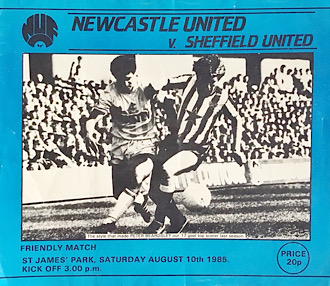
Chris Waddle moved to Tottenham for £590,000 and to make fans even more concerned, Beardsley was refusing to sign a new contract (his current contract took him up to the end of the 1985/86 season).
Despite the Waddle windfall Charlton had only spent £50,000 on Manchester United reserve Alan Davies, although he had also had a bid for QPR winger Ian Stewart accepted. His perceived lack of willingness to spend was beginning to anger supporters.
Charlton opened up negotiations with Ipswich midfielder Eric Gates, but thought the terms he was requesting were "over the top". Meanwhile Lawrie McMenemy stepped in and signed him for newly-relegated Sunderland on the day of the final pre-season match against Sheffield United.
There were less than 5,000 at the game, but a vocal section of the Gallowgate made themselves heard. "Charlton must go", "We hate Charlton" and "Sack Jack" were some of the chants aired leaving the manager (in Seymour's words) "hurt and visibly upset".
As soon as the whistle blew he stormed into the boardroom and informed Seymour that he was resigning. "The crowd will get exactly what they want… If they want to get rid of Jack Charlton then they have done it". Although the Chairman does not accept his resignation Charlton confirms that: "I will be in on Tuesday to collect my belongings, there is no way I'm going to change my mind."
From Jack Charlton’s perspective, despite conceding a “bloody awful” 78 goals in all competitions, he almost certainly believed he achieved everything he could in the time he was manager. Survival achieved, team made more “professional”, player discipline enforced and books balanced.
Supporters would no doubt be split on whether his reign could be deemed a success or not. But what is indisputable is that he walked out a week before the start of the season based on the chants of a small minority of the fan base.